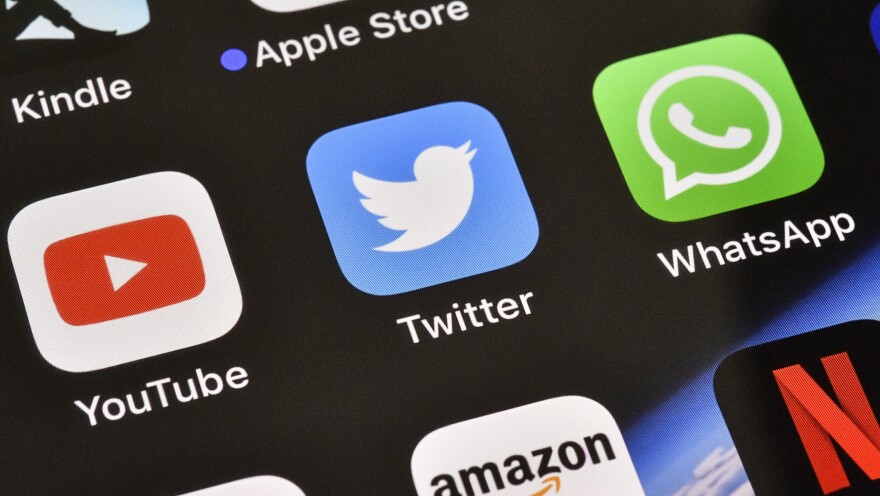UPDATE, 9 p.m.: Adds comment from a media lawyer on whether students could be held liable for sharing bigoted content online. Corrects to remove inaccurate information about Washington's law on recording conversations.
Schools are increasingly having to deal with the combustible mix that results from students having cellphones and using social media.
That played out in dramatic fashion this week as Hamilton International Middle School in Seattle tried to address the fallout from a student's tweet that went viral and drew the attention of the right-wing conspiracy website, InfoWars.
It began when a teacher at Hamilton gave a lesson on the dangers of fake news and sharing inflammatory content on social media. One of his students recorded part of the lesson and tweeted it out.
In the clip, the teacher warned students not to retweet content from the controversial YouTube star Felix Arvid Ulf Kjellberg, known as PewDiePie. The internet celebrity has shared anti-Semitic messages online.
The teacher at Hamilton warned students that if they share PewDiePie’s material, they're promoting “ignorance, racism, genocide, anti-Semitism” and that they could get in trouble for sharing it. He said that if PewDiePie were sued, the student could be complicit for retweeting anti-Semitic material and could have to pay a fine.
Legal experts said that's not likely to happen.
"Publishing or republishing a bigoted tweet generally does not give rise to liability unless the publisher intends to incite violence and violence is indeed imminent and likely," said Ambika Doran, co-chair of the media law practice at Davis Wright Tremaine.
A TWEET GOES VIRAL
The student at Hamilton tagged PewDiePie in his tweet and got the attention of InfoWars, which said the teacher had gone on an “unhinged rant.” The video has been viewed more than 1.9 million times.
“As time went on, the post was retweeted by many others and as sometimes happens in social media, negative comments and language were included,” Hamilton Principal Dorian Manza wrote in an email to parents. “While the language did not include a direct threat, out of an abundance of caution, we responded by contacting the Seattle Police Department.”
A spokesman for the police department said officers determined there was no safety risk. The school will have “extra security presence and the Seattle Police Department will continue to monitor the social media traffic,” Manza wrote.
Manza told parents that, according to Hamilton policy, students are not allowed to record video in class unless it's for an assignment.
Kimberly Christensen is the parent of a student at Hamilton. She said her child likes the teacher and was concerned for his safety.
“It’s so ironic that the teacher was trying to give an education about digital media and the social age and became a living example of how these things can go wrong,” she said.
Christensen said she was disappointed that the school didn’t notify parents of the incident more quickly. She added that she wants more information from school officials about teaching children to use social media responsibly.
“The digital age is kind of a terrifying thing to approach as a parent and we all just want to keep our kids as safe and engaging in positive manners as we can,” she said. “But obviously we’re not all doing that properly or we wouldn’t be having this situation in the first place.”







